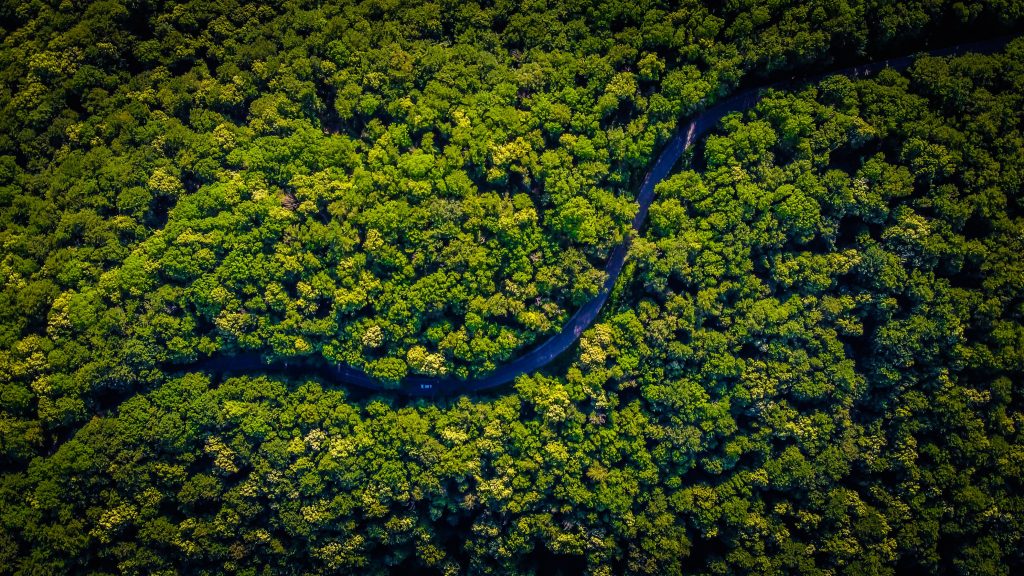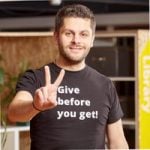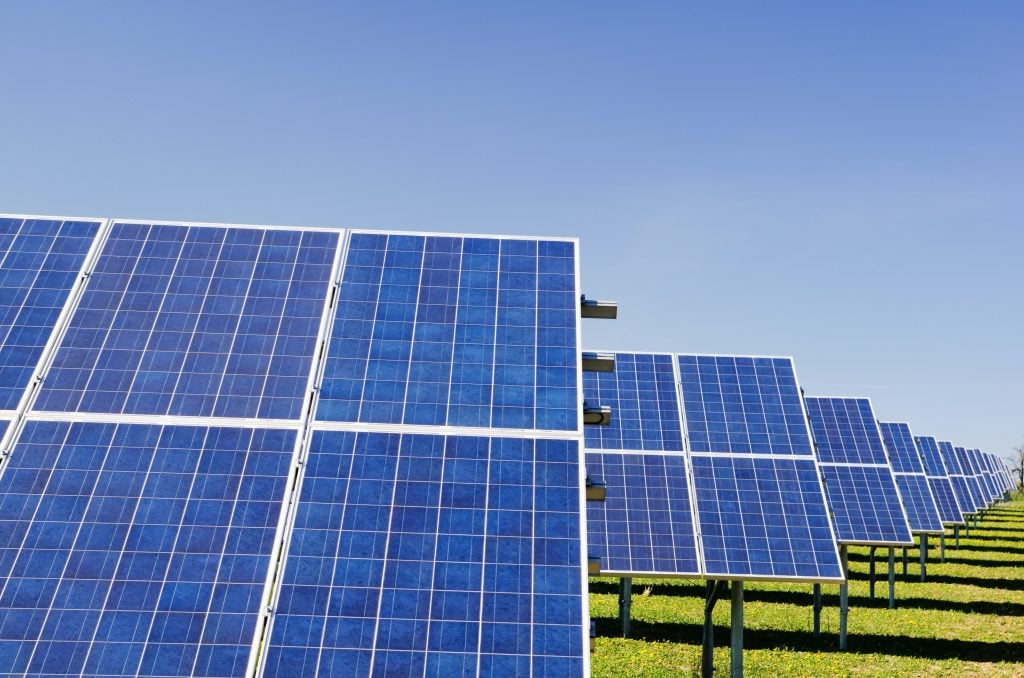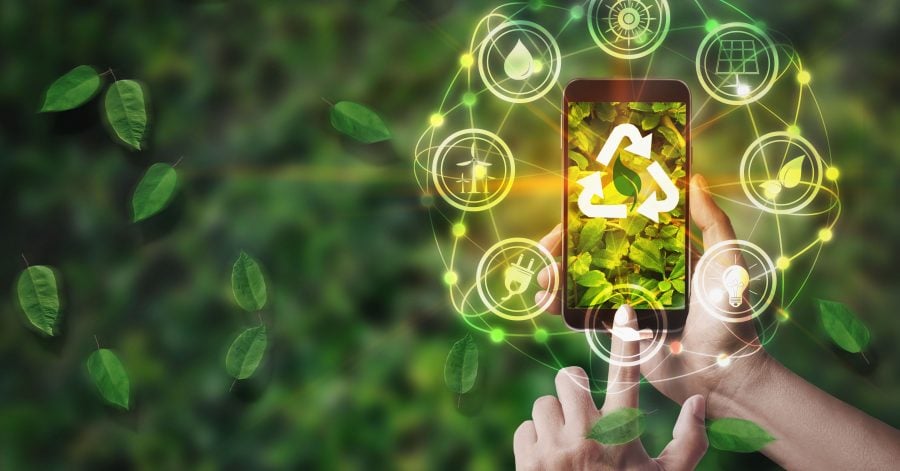“We are fixing climate change one startup at a time,” says Cristina Badulescu. She is Romania’s national lead at the EIT Climate-KIC Hub Romania, part of the biggest private-public partnership focused on climate innovation in Europe. The Recursive had a talk with her about one of the hub’s programs focused on cleantech, Climate Launchpad.
Why startups? “A green and clean future demands thousands of innovations challenging the current business models,” Climate-KIC explains. The ClimateLaunchpad pre-accelerator program sets out to unlock the innovation potential of the country in mitigating the effects of climate change. Throughout the competition, teams shape up their innovative cleantech ideas, build a business plan, practice pitch skills, join a network of innovators, and get exposed to potential investors.
Cristina has coordinated Climate-KIC since 2014. This is when the country joined the Knowledge and Innovation Community, an initiative of the EU’s European Institute of Innovation & Technology.
Over the years, Cristina has seen how the Hub is growing and how its sustainability innovation and cleantech programs are flourishing. To date, 4 other partners have joined the 2 founders Timis Chamber of Commerce, Industry and Agriculture and the West University of Timisoara. Interest in the startup programs is also spreading.

In this story The Recursive explores how startups and business innovation contributes to Romania’s green transition:
- Cleantech and innovation play a vital role, as the government lacks resources and public trust
- New local initiatives activate the community to solve sustainability problems
- Fresh startups provide market-based solutions in areas like reusing and recycling
- Vocal groups educate citizens on the transition to renewable energy sources
The role of business & startups in tackling sustainability challenges

Cristina, much like other frontrunners in the space of sustainability, is convinced that cleantech and innovation have a vital role to play. Among others, they will help achieve a leaner transition, by avoiding excessive shocks and achieving resource efficiencies.
Additionally, the importance and responsibility of business have been well established in the transition to a green economy. Citizens, NGOs, and governments have called businesses to contribute to the UN’s Sustainable Development Goals through the UN Global Compact’s 10 principles of acting responsibly. Companies are expected to not only limit any negative effects of their activities but also use their market knowledge and influence to drive sustainability innovation and positive impact.
In Romania, it’s all the more essential that corporations and startups contribute to the green transition. Another key local stakeholder, the government, lacks both the resources and society’s trust to tackle such complex issues alone. One of the sectors that illustrates this problem is energy, as shared by Andrei Ilas in an interview.

The Energy Cooperative is the first of its kind in Romania. The company aims to produce and supply 100% green energy to its members, who are also investors, and clients.
Furthermore, the entrepreneurial spirit that brings innovation in the market requires not only good ideas but also the courage to fail. When it comes to developing innovative climate mitigation solutions, Romania needs a daring and adaptive business sector, ready to take risks. Startups are an essential cog in the machine, with their potential to identify new opportunities for change and tap onto the potential of technology to ensure a lean transition.
Sustainability challenges in the local context
In Romania, the need for climate action and sustainability have insofar mostly translated into a fight against certain national socio-environmental issues, such as growing amounts of waste, poor air quality, and energy poverty.
A wider discussion around climate change and cleantech solutions is, however, gaining traction, especially as EU member states have publicly committed to the European Green Deal. This set of policy initiatives of the European Commission identifies common environmental challenges and enforces actions.
Romania is perceived as one of the less ambitious member states in terms of the government’s willingness to implement the Green Deal. Yet, according to the European Council of Foreign Relations, the country is making more efforts in tackling the climate challenge compared to other countries in Southeast Europe.
Mitigating climate change

Through the European Green Deal, EU member states pledged to decrease greenhouse gas emissions by 55% until 2030. To that end, countries including Romania will receive dedicated funding and an aiding legislative package. According to its national bank, BNR, Romania has the potential to attract further impact investments, as the country with the largest reductions in CO2 emissions in the region in the last 30 years and a 24% renewable energy share in 2020.
New and fresh local initiatives, such as The Climate Vertical, indicate the potential for innovation and startup contribution in this space. The venture capital company aims to activate the local community around solving climate challenges.
With a stepped approach, The Climate Vertical has first launched an open call inviting people to reconnect with nature, as well as observe, note, and share a climate change-related issue. The team feels that this period of raising awareness and encouraging reflection is needed.

After June 2021, the initiative will focus on supporting the communities in developing solutions and scaling cleantech startup ideas at national and global levels. The programs will range from an intense hackathon to a 3-days boot camp and, finally, to a 3-months accelerator.

Bears on the road
For Cristina Badulescu from Climate-KIC Hub Romania, some of the local challenges in taking climate action reside in the social and cultural DNA of the communities. It takes a lot of courage from entrepreneurs to take risks, fail, and try again. Cristina believes that Romanians still lack the entrepreneur’s courage to risk everything for their business.

Participating in incubators and accelerators, through the encouragement and support provided, can help entrepreneurs feel the business potential in their ideas and make the leap to defining a business plan.
Building a circular economy

In Romania, the concept of circular economy (of economies recirculating materials through different cycles instead of discarding them as waste – Ed.Note) started to gain public attention in the past few years through events and initiatives, organized by passionate professionals, entrepreneurs, and government officials.
Reducing and reusing
Slowing down consumption and reusing products and materials to prevent excess is one way to do that. And cleantech can reduce part of the related burden.
For instance, bonapp.eco, a freshly launched Romanian startup, aims to reduce food waste by connecting consumers with companies selling leftover food items. The focus on food was due to the huge amount of lost resources in this area: 33% of food produced worldwide goes to waste. On the bonapp.eco mobile app (available starting early July) consumers will discover and order unwanted food items sold by supermarkets, restaurants, hotels, cafes, and gas stations, among other clients.
Another initiative, R-CREATE, aims to eliminate single-use packaging from e-commerce. The founders, Linda Vasilescu and Adina Huma, were motivated by the need to create a financially viable solution for e-commerce that could eliminate waste without friction and hassle for retailers and consumers. They started with a reusable bag, but the end goal is to create a digital platform that provides various reusable packaging solutions.

Refurbishing, remanufacturing, and recycling
Since reducing and reusing cannot apply to every instance and all products, at least in the short term, refurbishing and remanufacturing products are two other viable solutions to increase circularity.
In Romania, fenix.eco gives new life to old phones. The team decided to make a change in electronics, an industry with a large footprint on resource use and waste creation. Fenix.eco takes in and refurbishes old phones, creating a secondary market for restored, verified, and more affordable products.
Finally, when products cannot be otherwise recirculated, recycling the resulting waste has a lower impact than landfilling or burning. Yet, recycling involves complex processes and a multitude of stakeholders. To break down barriers in communication and collaboration between different parties, EcoTree aims to digitalize recycling. Their platform works as a marketplace for organizations that want to recycle their waste and potential waste collectors and recyclers that are looking for quality material.
Bears on the road
Raising awareness of the issues of linear consumption and changing behaviour are some of the key challenges mentioned by advocates of the circular economy. The topics of climate change and sustainability are complex due to their myriad connections and implications. It may take some time for the market to be educated.
Cristina Badulescu shares that the lack of knowledge in the market, as well as a temporary resistance to change, makes it tougher for entrepreneurs to find a product-market fit, even when their ideas have a great potential for positive impact. This “timing issue” discourages some of the startups looking to bring innovations to the market.
Transitioning to renewable energy

Romania is not yet tapping the full potential of its renewable energy sector, despite decreasing costs of renewables and incentives at the EU level. Romania has not installed new capacities of renewable energy since 2015 when it managed to meet its 2020 target. A major factor is the lack of predictability in the legislative framework for renewable energy, which has changed abruptly in recent years and has created mistrust in the market.
The current renewable energy share 2030 target set at 30.7% is below the 34% target recommended for Romania by the European Commission.
The Energy Cooperative represents one of the fresh, vocal groups that are trying to educate citizens on the need to transition to renewable energy sources, as well as offer a viable solution. Part of their potential resides in the business model, a new setup for the energy market in Romania. As members of the cooperative, consumers have the option to become investors in the company itself and members of a wider community of green energy promoters.

Bears on the road
To take off again after a period of stagnation, renewable energy development in Romania will need to surpass multiple challenges.
First, there is no current framework of political support for renewable energy. Andrei Ilas points at the need for a long-term legislative framework to support the development of renewable-energy-based infrastructure, as well as more market support, as incumbents are currently favored.
Another challenge is avoiding the destabilization of local communities, reliant on fossil fuels such as coal.

Despite current conditions, future investment in local renewable projects and cleantech, coupled with education of the public are part of the necessary efforts to unlock Romania’s untapped renewable energy potential.








